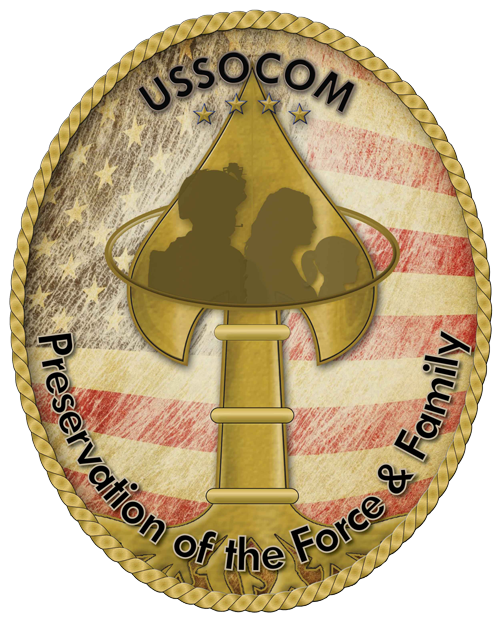Making diversity a SOCOM strength
While some view issues of diversity as potentially controversial, it also can make SOCOM families and communities stronger and smarter.
By:
Mind - Stress
-
11/15/2018
-
Page Image 1
-
Page Image 2
-
Slider Image
Page Content
The U.S. military comprises a diverse collection of members, and DoD continues to make significant progress to advance inclusivity and diversity for gender, race, ethnicity, sexuality, and religion.
For example, lesbians, gays, bisexuals, and transgender persons can openly serve, and women are now considered for combat positions. Rules have been relaxed around religious clothing and appearance. Family members are likely to run into diverse families at the commissary or exchange or at PTA meetings. And there's a good chance your kids will meet and maybe become friends with children from families of different backgrounds.
While some view issues of diversity as potentially controversial, diversity is essential for the military to maintain representation and connection to those it serves. Diversity can be difficult to navigate at times, but it also can make SOCOM families and communities stronger and smarter.
How Does Diversity Strengthen SOCOM Families And Community?
Diversity boosts problem-solving. Effective solutions and innovative thinking happen when those with varied outlooks and experiences work together. Diverse teams excel because they are better able to examine all sides of an issue, focus on facts and evidence, and identify new solutions. Having a diversity of perspective to draw on enables Operators, Enablers, and families to think more critically about issues that impact the SOCOM family and work together to come up with innovative solutions
Diversity allows for authenticity. Organizations and communities that support inclusion and discourage discrimination enable their members to be genuine in personality, spirit, and character while bringing their strengths to their lives. This enhances overall well-being at home and at work, improves job satisfaction, and decreases burnout and job-related stress.
- Diversity fosters flexibility. According to a DoD report, the military connects diversity to overall readiness and mission accomplishment. Diversity initiatives enable leaders to recruit and retain talent from a broader pool, promoting strategic agility. Practicing cross-cultural competence and communication within the Armed Forces helps Service members use their skills to navigate cultural divides they encounter on global diplomatic and combat missions. Being more open to differences also can help family members as they transition through permanent changes of station and assignments overseas.
How Can You Become More Open To Differences?
Navigating differences in beliefs, values, and perceptions begins with challenging your own assumptions about how you see others and the world. We live in an increasingly global environment characterized by ever-broadening horizons, but many still struggle with viewing differences as an asset to be explored rather than a weakness to be fixed. When you're struggling to build bridges, try these strategies:
Practice empathy. Your perceptions of the world are born of your upbringing and life experiences, and they're often tied to deeply held beliefs and values.
Each person sees the world through a different lens. Reflect on how your experiences have shaped your perspective and consider how others might have come to see things from a different perspective. What seems irrational to you might make perfect sense to someone else, and vice versa. Seek to understand before you pass judgment—or perhaps just choose to accept.
Slow down. Your brain is programmed to take shortcuts, which at times can be helpful, but it also can lead to undesirable outcomes when left unchecked. The thinking traps that can result sometimes help you evaluate ambiguity and make quick decisions, but they also can block your ability to accurately assess people and situations. It's hard to know when you're on autopilot, so take a tactical pause to make sure you have all the information you need to make an assessment of someone or something. Ask questions or seek more information before you draw conclusions.
Check your assumptions and be open to being wrong. Your brain is influenced by what's known as the "confirmation bias." This bias causes most people to notice, remember, and weigh information in a way that tends to confirm their existing beliefs. At the same time, it leads them to not notice, not remember, and not give weight to information that goes against their beliefs. So once you form initial beliefs about a person or group of people, it can be really difficult to change your beliefs unless you become aware of how your brain unintentionally gathers information. What's more, human beings don't like being wrong or changing their minds. So when you seek information, you're likely (quite unconsciously) to ask leading questions that will only get you more evidence to support your beliefs. Learn how to ask fair, open questions and be more objective by relying on concrete data and facts, and then make an earnest effort to prove yourself wrong.
Practice self-regulation. As a human being, emotions can cloud logical thinking, hinder effective decision-making, and impair judgment. Sometimes distressing physiological changes accompany your emotions and fuel even more inaccurate thinking. Use strong emotions as a signal that you need to think more critically and carefully, especially when there's a lot at stake. For those times when the physiology that comes with emotions is overwhelming, learn how to calm down and remain open and composed by using breathing techniques or thinking about the connections between your thoughts, emotions, and physiology.
Tolerance and acceptance of diversity in the world can help Operators, Enablers, and their families perform optimally, reduce conflict, communicate more openly, and enhance relationships with those around them. The very things that might seem to divide SOF families can make them stronger. By becoming aware of the differences between people, you can work on strategies to bridge the divide.
Making diversity a SOCOM strength.aspx
Related Articles

